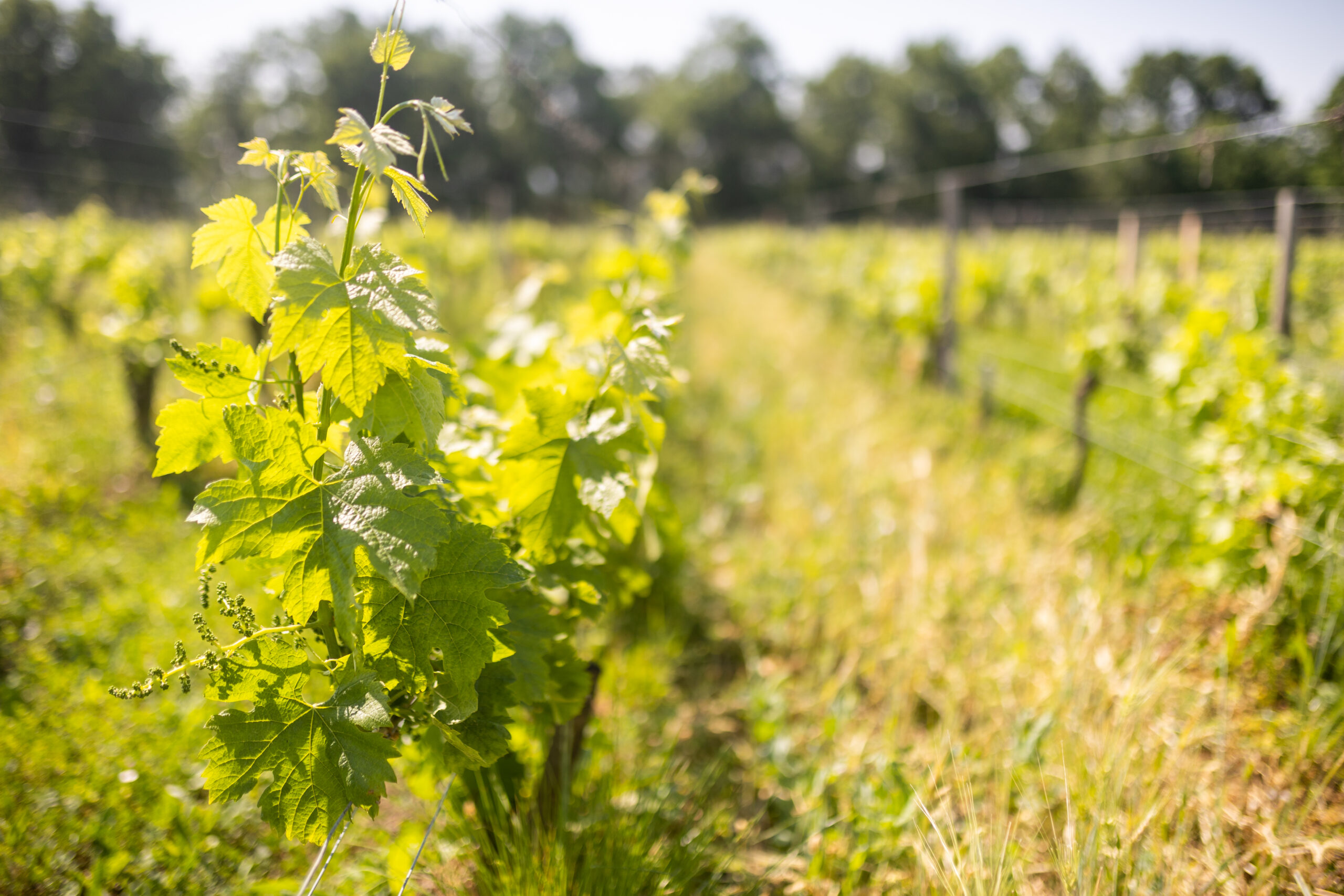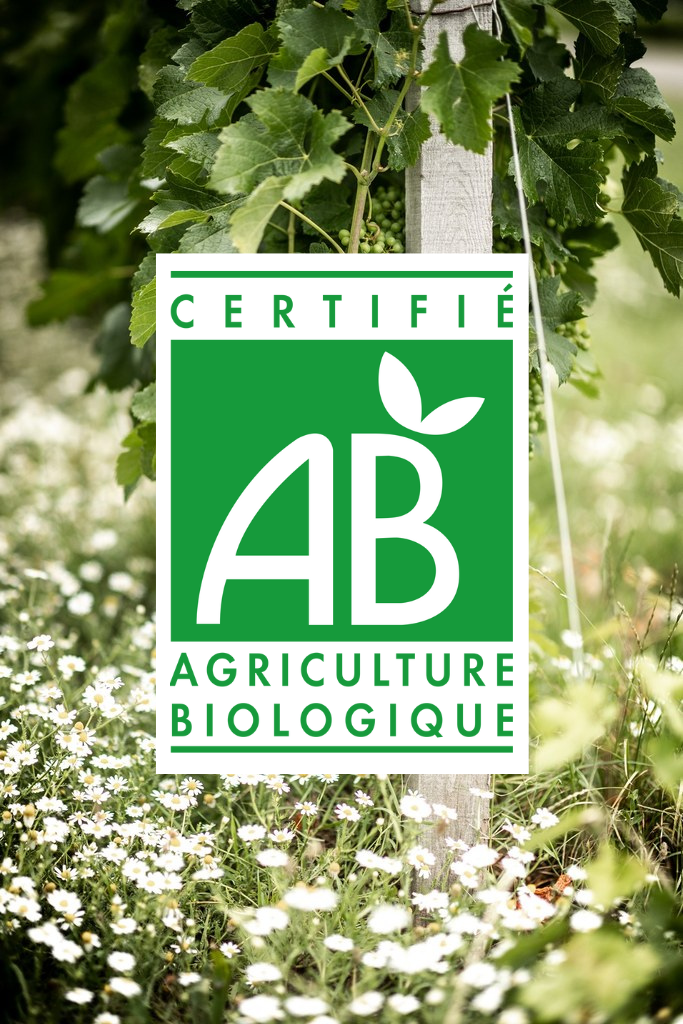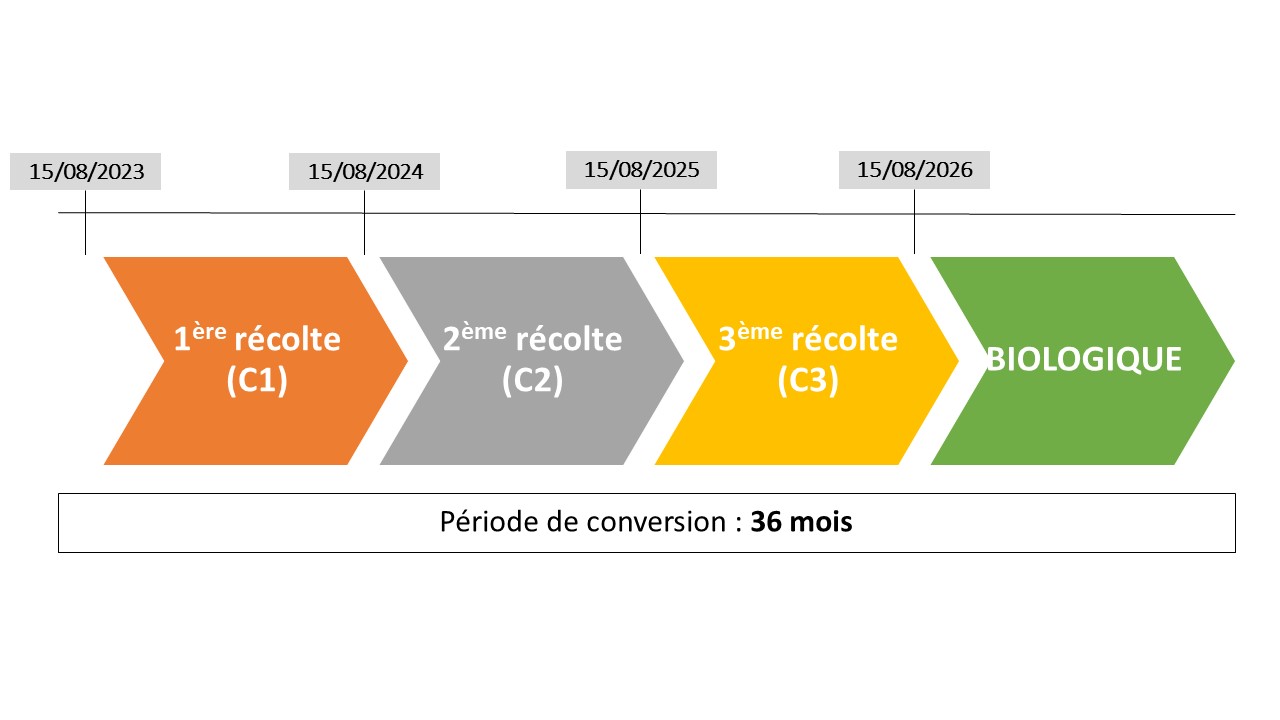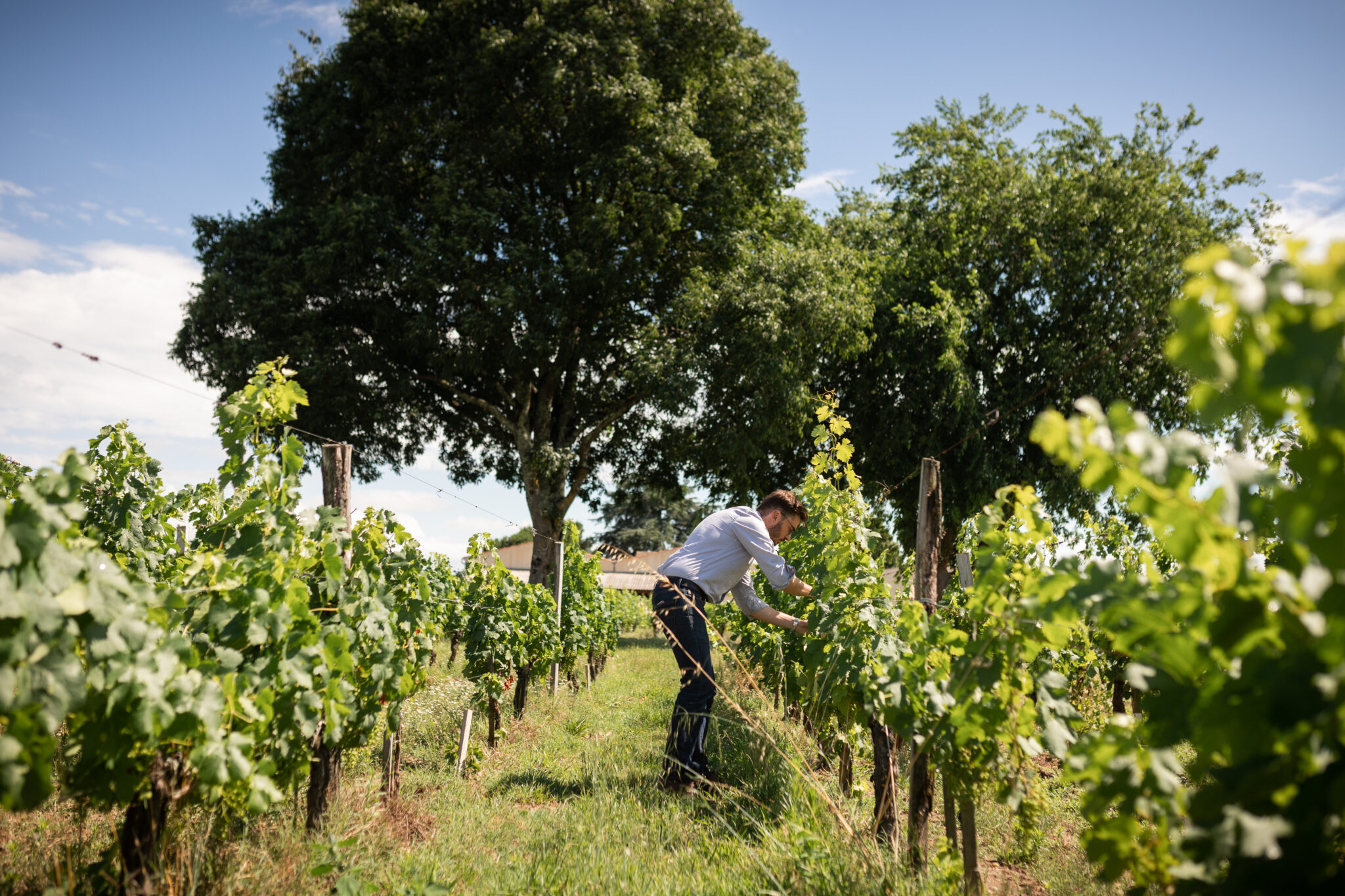



The BIO certification in Saint-Émilion is a recognition awarded to winegrowers and producers who comply with the strict standards of organic farming.
This guarantees high-quality wines, grown without the use of synthetic chemicals, while preserving the environment.
Organic farming is not so different from conventional farming. What differentiates them is the use of natural products in organic farming.
To get the organic farming certification, winegrowers must commit to :
Organic farming practices focus on preventing pest, disease and weed problems. To combat weeds, they use mechanical techniques such as tillage and thermal weeding.
The use of natural methods and products means that, unlike synthetic products, they do not enter the plant or the fruit.
The grapes are grown according to the principles of organic farming, and the winemaking process follows practices that are more respectful of the environment than traditional viticulture: no use of synthetic pesticides, chemical fertilizers or GMOs, and maximum autonomy for soil fertility.
The specifications for organic (BIO) certification require in particular:
These regulations ensure that consumers have access to reliable organic products that meet strict standards at every stage of the chain, from production to processing, transport, storage and distribution.

Organic farming is regulated in a harmonized way by all EU member states. They have worked together to define what an organic wine really is, which has led to the inclusion of specific crop standards in the specifications, as well as recent guidelines for winemaking.
It should be pointed out that winegrowers have to wait 3 years after applying to be certified organic. 3 controls on 3 different harvests are required to verify that the entire process complies with the certification.

Committed to environmental protection and keen to leave quality land to future generations, 152 of Saint-Emilion’s winegrowers are certified organic:
10 organic growers in the Lussac Saint-Emilion appellation,
10 organic growers in the Puisseguin Saint-Emilion appellation,
39 organic growers in the Saint-Emilion appellation,
93 organic growers in the Saint-Emilion Grand Cru appellation.